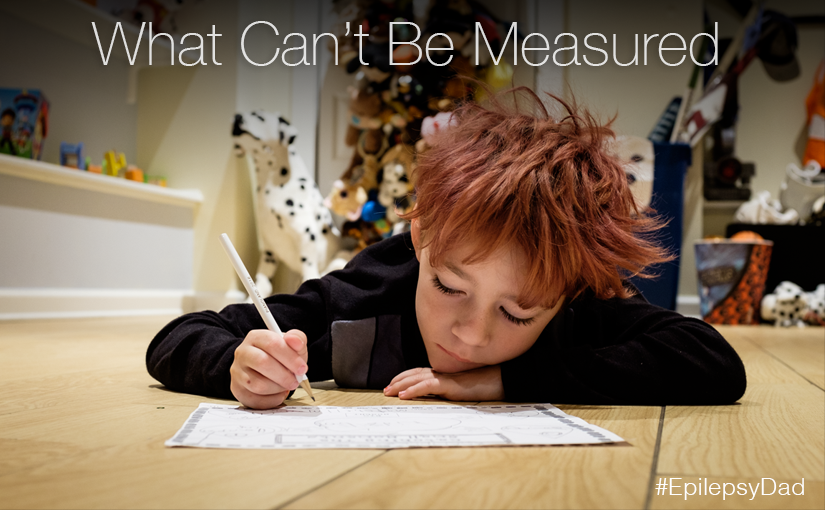We sat in the windowless office of the neuropsychologist’s office waiting to hear the results of the daylong series of cognition tests that my son took a few weeks before.
Like most parents, I know my son is intellectually gifted. I can easily point to instances where he figured out a hard problem that he shouldn’t have or learned a new concept much more easily than I could have. Genius? I don’t like to use labels, but since you brought it up, let’s go with it.
In the previous two years, however, my son’s brain had been through a lot. Seizures. Status epilepticus. Toxicity from an adverse reaction to medicine. For a few days, it forgot how to move my son’s body or form words for him to speak. In many ways, we had to start over, helping him form sentences and complex thoughts. Helping him put ideas together in the right order or to remember a simple sequence of steps. After everything he had been through, after having been picked up and spit out by a tornado, we sat in that office to find out where he landed.
“Overall,” the doctor said, “your son is remarkably consistent.” It took me a few minutes to absorb the word and process its meaning. I had expected the results of the test to fall on either extreme of the spectrum. Either he was back to being a genius or his brain was irreparably damaged, but consistent?
Sensing my confusion (probably aided by my snarky “Oh, my son is perfectly adequate, like buttered toast.” comment), the doctor went on to explain that the tests showed that, aside from a few areas that needed extra attention, my son was “about average.”
The higher you climb, the further you have to fall. Selfishly, that was the first thought that came to my head. My genius son who was destined for the stars had been forced back down to earth with the rest of us by a cruel twist of genetic fate.
It was only after a few minutes that I realized what a gift I had just been given. My son was “about average”. After two years of seizures, and status, and side effects. Two years without consistently going to school, of hard work at home teaching him to read and to write and count. After all of that, my son managed to come out “about average”.
It was a miracle.
As I thanked the doctor for her time, she added that she enjoyed spending time with my son. She commented about how hard he worked, even though she could tell that he was tired. Her mouth turned upward into a big smile as she told us how he made her laugh. Weeks removed from the time she spent with him and after seeing countless kids in between, that smile showed that my son had left her with something more than a score on a piece of paper.
Our neurologist had also taken time out of her day to join us in the meeting. She has been an amazing ally and supportive influence who sees what is special about my son. That evening, we received an e-mail from her that said:
I wanted to emphasize that this does not predict where he will go in the future, and there’s a lot of wonderful things about him that cannot be measured at this time given his young age and some of the best things in life just can’t be quantified.
Exactly.
